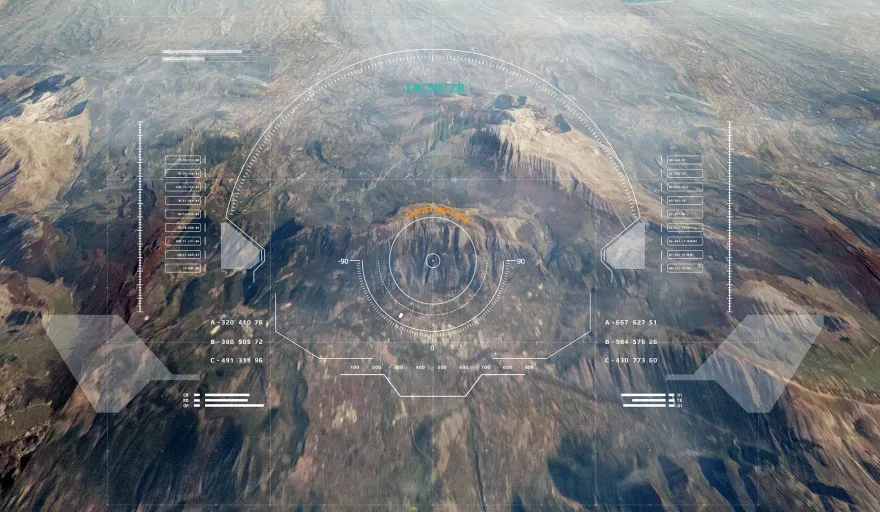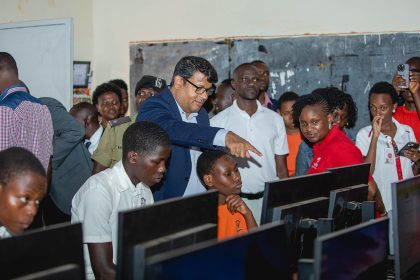With technology in the healthcare sector constantly evolving, we speak to Helena Samsioe, CEO and founder of GLOBHE, about the company’s use of drones in the detection and prevention of disasters across the continent.
DRONE DATA PROTECTION
From military use to filmmaking and racing, drones have become an efficient and practical tool across multiple industries.
In the constantly evolving field of healthcare, drones are arguably an essential tool. The example that is brought to mind is drone usage as a means of transport for light medical cargo to remote areas, over which a wheeled vehicle would find time consuming or struggle altogether.
“There is so much potential and yet there is so much that can be done,” begins Helena Samsioe, CEO and founder of GLOBHE. “We are focused on data capture, but there is much more to the use of drones. Delivery is one, and drone usage could benefit societies around the globe.”
GLOBHE
GLOBHE stands for ‘Global Health’ and is a Swedish-based start-up that specialises in sending out drone pilots to help various international communities and regions capture high-quality data on demand to detect and predict disasters, aiding the preventative efforts early on.
“Gathering image data is our primary focus; scanning environmental changes which could potentially lead to pandemics or alternative disasters – there is so much to be done with regard to helping identify problems,” Samsioe tells us.
Using drones, GLOBHE collects data to identify different types of changes in the environment that potentially indicate future problems, for example scanning large lake areas to pinpoint malaria mosquito breeding sites, therefore enabling the first stage of malaria outbreak prevention. And it is GLOBHE’s internationally spanning and task-specific efforts that place it on the map of drone-related healthcare services.
“We have a network of drone pilots in over 80 countries which means that we can operate on a global scale,” Samsioe elaborates. “But we are not just there to identify problems but also to provide a full and customised service to our clients.
“Making use of our digital platform ‘Cloud Running’ by GLOBHE is a really simple way for end users around the world to get hold of drones and send them out to retrieve data with a few clicks through our platform. To this end, we have an on-demand drone digital platform. No matter where our clients are, we provide easy access and value in our service.”
At present, GLOBHE is looking to raise capital. The aim of $1.5 million by August 2021 will aid the company in fine tuning its technological development and also help grow the team; while scaling up operations to increase reach and help as many communities as possible.
OPERATING ACROSS CONTINENTS
One of GLOBHE’s current projects relates to the aforementioned lake scanning, with a focus in East Africa. In Malawi, the company is part of a large international research project and is working closely with researchers to identify malaria mosquito breeding sites.
“Researchers have taken water samples from these lakes over the past two years and have identified visual characteristics of the lakes that have a high risk of producing malaria mosquitos,” Samsioe explains. “These characteristics can now be picked up by drones. So instead of having to have researchers covering huge areas of ground we can pinpoint and identify lake areas with the highest rates of potential danger and allocate resources to prevent the spread.
“At the core GLOBHE is focused on human and environmental health.”
GLOBHE’s drones enable the company to gather data 30 times faster than data collection via car, and with satellite imagery lacking image quality, drone usage stands as the current most advantageous form of data gathering in the field.
“We also use our drones to monitor infrastructure,” Samsioe continues. “GLOBHE drones aim to sense when natural disasters have, or are going to, take place. Whether this is flooding, cyclones, earthquakes, or wildfires our drones capture images and map our infrastructure destruction in these affected areas.
“GLOBHE has a global contract with a telecom company where we inspect telecom towers around the world to ensure that there are no issues with them and that communities are always connected.”
COLLABORATION
Operating across 84 countries, partner and supplier relationships are fundamental to GLOBHE’s business. The company works alongside local drone pilots as they are already situated in the country or region that requires GLOBHE’s services.
“These localised pilots also know the local conditions and have permissions from within the region in which we are to operate,” Samsioe tells us. “GLOBHE provides each pilot with an additional source of income and becomes a part of something bigger – helping their community through detection and prevention. It is a win-win scenario.”
GLOBHE: DRONES OF THE FUTURE
Into the foreseeable future GLOBHE is focusing on raising investment through which to increase and scale up its operations, to better collaborate with individual localised pilots and help communities around the world.
On top of this, a key component of its strategy is to move from on-demand orders to a subscription-based service through which companies, governments and alternative clients can be provided with continuous services on a familiar basis, whether that is once a quarter, month or week. Through its continued operations GLOBHE aims to spread awareness of the impact drones have on disaster prevention and increasing the health of people and the environment.





























